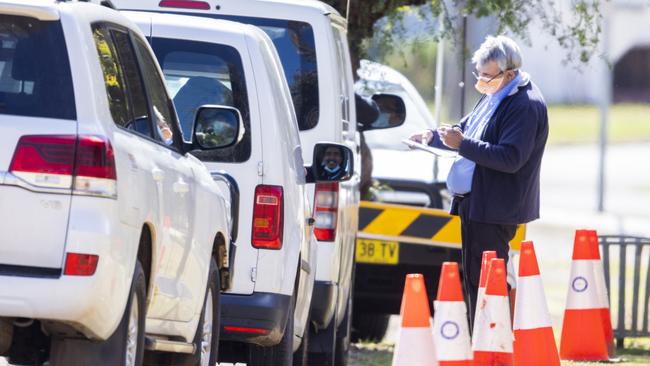Coronavirus: Study highlights Covid-19 risk for Indigenous
Almost six out of ten Indigenous adults have an elevated risk of severe illness if they are infected with Covid-19, a study has found.

Almost six out of ten Aboriginal and Torres Strait Islander adults have an elevated risk of severe illness if they are infected with Covid-19, a major study led by The Australian National University has found.
The study examined the prevalence of health factors like cardiovascular disease, diabetes, cancer and smoking among Aboriginal and Torres Strait Islander adults, which all increase the risk of severe illness if an unvaccinated person gets Covid-19.
It found 59 per cent of Aboriginal and Torres Strait Islander adults have these and other existing conditions that could increase the risk of needing intensive care admission, mechanical ventilation or death if they contract Covid-19 and are not vaccinated.
The study, published Thursday in the Australian and New Zealand Journal of Public Health, supports the federal government‘s initial decision to prioritise Indigenous Australians in the vaccine rollout. Aboriginal and Torres Strait Islander people over 55 were second in line for Covid-19 vaccinations, after aged care and disability care residents and staff, frontline healthcare workers and quarantine and border workers. Indigenous Australians aged 55 and under were third in line, ahead of non-Indigenous Australians.
However the rollout was slowed and in many places stalled due partly to shifting advice about which Australians should take AstraZeneca. Also, adequate supplies of Pfizer did not begin to reach Aboriginal medical services including in regional and remote communities until late June. Nationally, Aboriginal and Torres Strait Islander people remain far less likely to have been vaccinated than other Australians.
Researchers and health practitioners at ANU, the National Aboriginal Community Controlled Health Organisation, the Royal Australian College of General Practitioners and the Lowitja Institute wrote the paper and say their findings reinforce that Aboriginal and Torres Strait Islander Australians “must remain a priority group” for the nation’s COVID-19 vaccine roll-out and broader pandemic response, rather than being simply labelled vulnerable.
Lead researcher Katie Thurber, from ANU, said the root cause of Aboriginal and Torres Strait Islander peoples’ elevated risk of severe Covid-19 illness was health inequality “stemming from colonisation and racism”.
“Aboriginal and Torres Strait Islander adults who have high household income, live in advantaged areas, are food secure, do not experience discrimination, were not forcibly removed from family, and have access to healthcare are at significantly lower risk of severe illness if they contract Covid-19,“ Dr Thurber said.
“If all Aboriginal and Torres Strait Islander peoples had access to these key determinants of health, it is likely that risk of severe illness from Covid-19 would be much lower in the population.
“Our study makes it very clear; because of these long-term inequities, Aboriginal and Torres Strait Islander peoples must continue to be treated as one of the highest priority groups in our pandemic response.”
GP and medical adviser Jason Agostino, from ANU, said: “We found that three-in-five Aboriginal and Torres Strait Islander adults have at least one of these risk factors.
“This means there are almost 300,000 Aboriginal and Torres Strait Islander adults who are at higher risk of getting very sick if they are not vaccinated and get Covid-19.
“This is why getting the vaccine is so important for Aboriginal and Torres Strait Islander peoples. It lowers your own risk of severe Covid-19 and decreases your chance of spreading Covid-19 to people at high risk in your community and your family.“




To join the conversation, please log in. Don't have an account? Register
Join the conversation, you are commenting as Logout